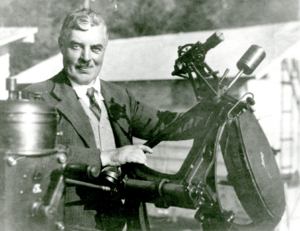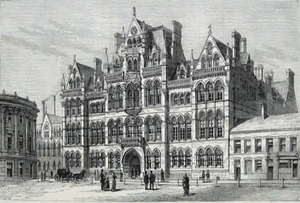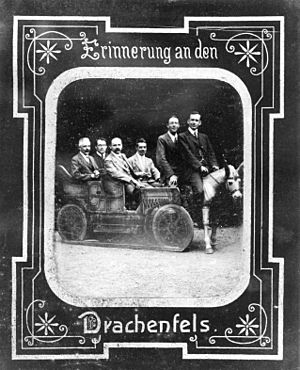F. J. M. Stratton facts for kids
Quick facts for kids
F. J. M. Stratton
|
|
|---|---|
 |
|
| Born | 16 October 1881 Edgbaston, England |
| Died | 2 September 1960 (aged 78) Cambridge, England |
| Allegiance | |
| Service/ |
|
| Years of service | 1910–1945 |
| Rank | Lieutenant-Colonel |
| Battles/wars | World War I World War II |
| Awards | Territorial Decoration Officer of the Order of the British Empire Distinguished Service Order |
Frederick John Marrian Stratton (16 October 1881 – 2 September 1960) was a very smart British scientist who studied space, called an astrophysicist. He was a professor at the University of Cambridge and also a brave officer in the British Army. He served in both World War I and World War II.
Contents
Early Life and Education
Frederick Stratton was born in Edgbaston, Birmingham, England. He was the youngest of eight children. His father was a music critic, and famous musicians like Dvorak would visit their home.
When he was 10, Frederick won a scholarship to a good school in Birmingham. Later, he went to Mason College, which is now the University of Birmingham. In 1900, he won another scholarship to Gonville and Caius College, Cambridge, a famous university.
He studied Greek, Latin, and maths, graduating in 1904. He did very well in his maths exams, known as the Mathematical Tripos. He also won important awards like the Tyson Medal for astronomy and a Smith's Prize. In 1906, he became a Fellow of his college, which meant he was a special member of the university.
Military Service and Bravery
Frederick Stratton was not just a scientist; he was also a dedicated soldier. In 1901, he joined a volunteer group at Cambridge University that later became the Cambridge University Officers Training Corps. He helped create a special signals company, which dealt with communications.
World War I Hero
When World War I started in 1914, Stratton joined the Royal Engineers. He was in charge of a signals company and went to France in 1915. His job was to make sure messages could be sent across the battlefield.
He was known for being very efficient and always cheerful, even when he hadn't slept for days. For his bravery and excellent work, he received the Distinguished Service Order (DSO) in 1917. He was promoted to Lieutenant-Colonel and became the chief signals officer for a large army group. He was mentioned in official reports five times for his outstanding service. France also honored him with the Légion d'honneur award.
Service Between Wars and World War II
After World War I, Stratton returned to Cambridge. He continued to lead the signals section of the Officers Training Corps until 1928. In 1929, he was made an Officer of the Order of the British Empire (OBE) for his military service.
Even though he was almost 60 years old when World War II began in 1939, Stratton wanted to serve again. He convinced the War Office to let him command a training unit for officers. Later, he worked on radio security, traveling across the British Empire and to the United States. He finally retired from the army in 1945, keeping his rank of Lieutenant-Colonel.
Scientific Career and Discoveries
After his military service, Stratton focused on his passion for space. He worked as a maths lecturer at Cambridge.
Leading Observatories
From 1913 to 1919, he was the Assistant Director of the Solar Physics Observatory. This observatory studies the sun and its effects. He then became a Professor of Astrophysics and the Director of the Solar Physics Observatory in 1928. He led this important observatory until 1947. He also wrote a detailed history of the Cambridge Observatories.
Recognized for His Work
Stratton was a very respected scientist. He was the president of the Royal Astronomical Society from 1933 to 1935. In 1947, he was elected a Fellow of the Royal Society, which is a very high honor for scientists in the UK. In 1952, he received the Prix Jules Janssen, a special award from a French astronomy society.
Personal Life
Frederick Stratton was also interested in parapsychology, which is the study of mental abilities that are not easily explained by science. He was the President of the Society for Psychical Research from 1953 to 1955.
Frederick Stratton passed away in Cambridge in 1960, at the age of 78. He never married.



